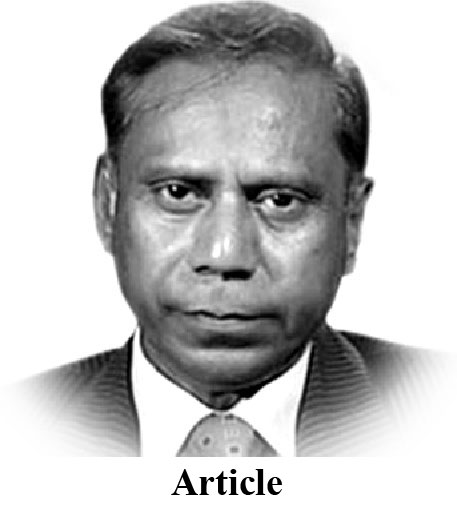Sultan M Hali
KASHMIR Solidarity Day is observed by Kashmiris and Pakistanis on 5 February each year and is a closed holiday in Pakistan. It is in observance of Pakistan’s support of unity with the people of India-Occupied Kashmir (IoK), and to pay homage to Kashmiris who have been martyred in the conflict. Solidarity rallies are held in Azad Kashmir, Pakistan and by Kashmiri Diaspora all over the world. Kashmir Day was first proposed by Qazi Hussain Ahmad of the Jamaat-e-Islami in 1990. In 1991, the then Prime Minister of Pakistan Mian Nawaz Sharif called for a “Kashmir Solidarity Day Strike”. Since then Kashmir Solidarity Day is observed regularly with solidarity rallies, seminars, tableaus and performances to remind world of sad plight of people of IoK.
This year, the day is occurring six months after the 5 August 2019 questionable act of abrogating Articles 370 and 35-A of the Indian Constitution, which provided IoK with autonomy and prohibited non-Kashmiris from acquiring property in the Valley or settling there. Resultantly, India annexed IoK and Ladakh into the Indian Union. The government was aware that the residents of IoK will come out in droves to protest the illegal Indian action thus the Valley has been in a state of lock down since. For Pakistan this Kashmir Solidarity Day was a major challenge. Human rights organizations and international parliaments have generally been silent over the plight of Kashmiris. Last September, Pakistan’s Prime Minister Imran Khan delivered an emotional speech at the United Nations General Assembly (UNGA) Session. His speech was well received, and he met numerous world leaders on the sidelines of the UNGA including US President Donald Trump. The US President was sympathetic to the plight of the Kashmiris and offered his good offices to mediate between Pakistan and India, but his gracious offer was turned down by the Indian Prime Minister on the plea that Kashmir is a bilateral issue between Pakistan and India.
Since then two other acts of the current ruling dispensation in New Delhi have brought about roars of protest in India. The contentious anti-Muslim Citizenship Amendment Act (CAA) allows Hindus, Christians and other religious minorities who are in India illegally to become citizens if they can show they were persecuted because of their religion in Muslim-majority Bangladesh, Pakistan and Afghanistan. It does not apply to Muslims. National Register of Citizens (NRC) excludes 1.9 million of north-eastern Assam State’s 33 million population. The NRC demanded the citizens to register themselves but the Muslims of Assam and elsewhere were barred from it so that they remain outside the reach of registration, deprived of their basic rights and if deemed necessary, forced to leave India. Throughout India, there have been massive rallies protesting the promulgation of both pieces of legislation, which were deemed as usurpation of human rights. Interestingly, it is not just Muslims, who are protesting the NRC and CAA but citizens of various faiths including Hindus. The rallies have been led by the student community, who have been fired upon and a number of them have been killed. The US Congress and European Parliaments have taken cognizance of the draconian piece of legislation in the form of CAA and NRC. They have asked India to reconsider. The sad part is that largest Muslim body to redress grievances, OIC has remained silent at Indian atrocities against Muslims.
Here Pakistan has been found wanting. Domestically it has made the right noises, holding rallies and organizing seminars. It has even motivated the Pakistani and Kashmiri Diaspora to hold protest rallies in various capitals of the world. The requirement of the hour, however, is that the Prime Minister himself should have undertaken whirlwind tours calling on his counterparts in world capitals to explain the gravity of the situation. Pakistan’s Foreign Minister has made numerous visits abroad while our Ambassadors accredited to different countries have been summoned to Islamabad and been provided detailed briefings regarding the grim situation in Kashmir but that is not enough.
With every passing day, Narendra Modi’s government is getting emboldened despite the local remonstrations, which will die down. Indian economy is in doldrums and unemployment is at an all time high, which is acting as a catalyst for the students of its various universities to join the protest rallies, but it is Pakistan that needs to get its act together. India is already threatening that it will not talk to Pakistan regarding IoK, which it claims has become a part of the Indian Union. Modi’s government insists that parleys if any with Pakistan will be held regarding the state of Azad Jammu Kashmir and Gilgit-Baltistan, which India claims as its integral part and must be returned to India.
The requirement is that the atrocities being carried out by India including the employment of “Rape as a Weapon”, must be highlighted effectively. Mere briefings by Pakistan’s envoys will not have the same weightage as the Prime Minister, who has an iconic personality and is respected internationally, must carry the torch himself. He has shown that he is an effective speaker while Kashmir is a subject close to his heart. Notwithstanding the fact that Pakistan itself is faced with myriad issues, which need the close attention of the Prime Minister. The time for adding impetus to raising the ante is now otherwise India would have devoured IoK and suppressed any domestic dissent, sealing fate of Kashmiris and other Indian Muslims forever.
—The writer is retired PAF Group Captain and a TV talk show host.










